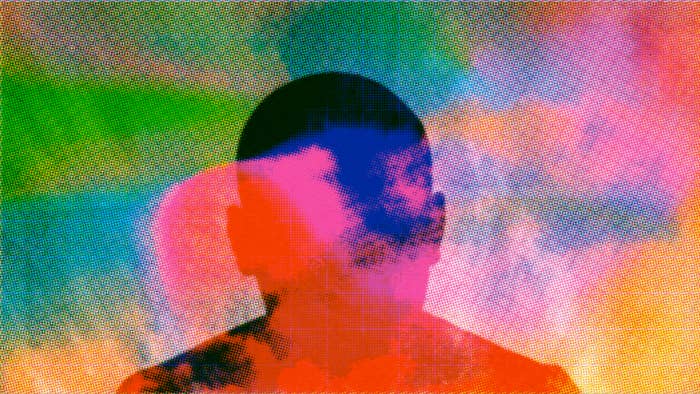
A notable amount of the commentary surrounding DaBaby’s homophobic comments at Rolling Loud Miami centered on publicists. DaBaby’s initial refusal to apologize had many people tweeting and sharing memes about how stressed his publicists must have been in those chaotic moments.
The hoopla opened a larger conversation about how PR people handle a job that, with certain clients, can often feel like putting out fires, especially in the fast-paced world of social media during a time of so-called “cancel culture.”
Sometimes the process starts with a simple conversation. Erin Ryan, senior publicity manager at New York-based PR agency Audible Treats notes a recent occasion where she had a call with an artist “explaining why something they said was not what they meant and could be twisted,” and the artist receptively replied, “‘Oh, I had no idea.’” She says, “Sometimes you get that, and sometimes you don’t.”
In most instances of trying to talk an artist down off a controversial comment, Ryan says it’s a matter of letting artists cool down and get in a “good headspace” where they don’t feel attacked for their misdeed. But Michelle McDevitt, president of Audible Treats, notes that there have been rare occasions where “we’ve been seen as mistrustful, or they’re not open to fruitful dialogue and are unwilling to change. They’ll label us as not a good fit, and then we’ve separated.”
The publicists we spoke with feel it isn’t their place to police a client, but merely offer suggestions and a sounding board.
“I think our job is to advise; it’s not to censor people,” says Dana Meyerson, a partner at Biz 3 Publicity who has been doing PR for over 18 years. McDevitt adds, “We’re not here to necessarily ‘teach them’ about anything that they ‘should know’ by now. We’re here to help them and be a resource if they are curious and have questions about what is controversial and what is not. What I’m trying to say is, it’s not us teaching them. It’s also them teaching us about why they believe in what they do.”
Both agree that it’s a two-way relationship. McDevitt recalls an occasion last year when certain artists told her why they were apathetic about masks and mandates.
“A lot of them told me, ‘Michelle, I can be shot any day and die in these streets. It’s been like that for years. Do you think that I’m afraid of a virus that I may or may not catch? And if I do, it may or may not kill me?’” she recalls. “That is such a grey threat, as opposed to getting killed by a bullet. That’s a real threat, possibly catching viruses and possibly dying from it is not acute—an acute threat dying in the streets. And honestly, I can’t argue with that. That’s so real and visceral. I did not feel comfortable saying, ‘Well, that doesn’t matter. Put on a mask and stay your ass indoors.’ I don’t have a place to stand on. That’s a very real threat, and I have not lived that life and do not know what that feels like. So I respect their ways, and I respect their decisions. That’s not a popular position, but it’s fucking real.”
“I think it’s about approaching difficult conversations with a purity and honesty and letting them know that it’s a safe space for them to talk about things with us however they want.” – Michelle McDevitt
Ariana White, a seven-year publicity vet who is currently at Atlantic Records, says that she’s had occasions where non-Black artists would chafe about the online criticism about them performing in a Black artform, and she would have to explain to them why the criticism was valid.
“I’ve had a white artist make rap music,” she says. “And just with that alone, it turned into the cultural appropriating conversation—which historically Black music is rap, jazz, R&B, kind of everything. And it’s two-fold for me. I do try to get the artist to understand. I explain it, as a Black person, this is why people might have a problem with it, and I might give suggestions on ways to soften the blow. Some people want you to pay homage and give good credit to the Black musicians before you, or really just show that you’re more than just making this song. You know the music, you know the history of it, you respect where it came from, and you’re not trying to overstep. And I feel like sometimes it becomes an ego trip, where it’s like, ‘But I should be able to do this too.’ And it’s like, stop for a second.’ I explain both sides, and then they can hear it more. And they can be more receptive of it, and understand, and then maybe not take it as personal.”
The advent of social media means that more than ever, publicists can find themselves in the center of a firestorm at any given moment. The women we spoke to expressed an understanding of both sides of the “cancel culture” dynamic with a sense of empathy for the artists they’ve come to respect and admire.
“I do think that social media and the cancel culture has made the job harder, just because you have people scouring the internet trying to make your life chaotic or hell,” White says. “They find the tweets from years ago and they bring that up, or there’s always a camera in your face.”
McDevitt says that the Audible Treats team is aware that many artists still have learning to do, and they take that into account with their clientele.
“We understand that people are at varying levels of understanding what is acceptable in mainstream culture and what is not,” she says. “We are careful and cognizant to understand where they’re coming from and what they’ve gone through in their lives, and what the culture is like in their upbringing and how that’s informed where they are.”
“Cancel” has become a phrase so overused that there’s no collective understanding of what it actually means. Sometimes “canceling” an artist means their name simply trends until people aren’t mad anymore, but in other instances, such as DaBaby being removed from a slew of festivals, an artist feels a tangible impact for falling out of public favor.
McDevitt, speaking generally and not about any one artist, says that she feels “what’s lacking” when it comes to so-called cancel culture “is that someone is penalized without having the space to learn in a productive manner.”
“It’s very penalizing,” she adds. “I think people are like, ‘Oh, it’s effective because they lost a check,’ or they got their account taken away, and it’s very punishing. But from a publicist’s standpoint, in my personal opinion, there’s a better way to have a learning moment with that person that doesn’t involve them being wiped out. I see a parallel in how if someone goes to prison and doesn’t get rehabilitation for that. Say it’s a drug situation and they don’t get rehab. You didn’t really treat the problem.”
“I ask a series of questions. I try to establish the relationship from the beginning that I’m here to help.” – Ariana White
White says that she’d like people to be more considerate about how their tweet or comment adds to a collective “weight” that has caused some artists to have breakdowns. She says that she’s seen “all kinds of crazy shit” in her position, including accounts DMing artists telling them to “kill themselves.”
“I would literally implore people to really understand the weight of their hate when they’re speaking to these artists,” she says. “And you really have to put yourself in that position. So I don’t like it, because I’ve seen artists cry over it. I’ve seen artists really get broken down over cancel culture. I’ve seen them want to give up their careers over cancel culture.”
Ryan expresses that she feels like the discussion around “canceled” entertainers can be a productive avenue for an artist’s growth.
“I do think that the benefit when we have these conversations is that it’s ultimately pushing things forward so that artists and people who are ‘canceled’ can hopefully learn from it,” she says. “I think that’s the ultimate goal—learn from it together, learn why they think the way they do, and why they should be aware of the way they say things, because they have a platform.”
Many people wonder how a publicist separates their morals from those of the artists they represent. For McDevitt and the other publicists we spoke to, the answer is easy: don’t.
“I don’t think that I [separate my personal belief from those that I’m representing],” Meyerson says. “I think part of the reason why I work where I work is that for me, doing what I do, those two things can go hand in hand. So that’s a deliberate choice. I don’t agree with everyone about everything, but I also make it a point to educate myself about other perspectives so that I know when a line is being crossed.”
McDevitt shares the same sentiment, explaining, “It’s difficult for me to separate personal with professional, so for me, they’re pretty much aligned with each other.” Ryan co-signs, “I think personal is very much tied with professional, but because of that we also try to bring our own personal beliefs into working with artists and try to avoid controversy before it happens.” Ryan says that part of protecting her personal-professional alignment is about being “aware of an artist’s background” in order to “meet them on their level.”
White expresses the same. She says she was initially reluctant to work with artists who depicted gun violence, because it hit particularly close to home after the death of a loved one, but she came to realize that, in many cases, artist’s content reflects what they were exposed to growing up. That realization, along with a sense of racial solidarity, made it easier for her to deal with.
“I grew up in the suburbs, but I’m Black and I have cousins and brothers and uncles that have grown up outside of the suburbs, so I know what all that looks like,” White says. There have been times where she turns down artists based on their content but, as she explains, “I don’t always turn them down, because I’m aware that they need someone that looks like them and someone that understands them on their side, and I’m a person that can help.”
So many artists need help from someone like her who understands where they’re coming from. Young artists become public figures at an age when many of us have made regrettable mistakes and comments. But artists don’t have the luxury to shake off those memories before they’re defined by them. For artists with a high level of social media followers and value for screenshotting rap news accounts, every comment and social media post is permanent. A fleeting, quickly-deleted tweet can start a firestorm. PR teams recognize that artists, caught in fight or flight mode, often reply to the social onslaught with back-against-the-wall defiance, which makes the situation worse for themselves (and the people who represent them).
“We turn down projects for several reasons, even when there’s a check waving in my face.” – Michelle McDevitt
Meyerson says that Biz 3 mitigates the drama by being discerning about who they choose to represent in the first place. Sometimes there’s a perception that publicists in general will work with anyone “for the check,” but both Biz 3 and Audible Treats say they have a selection process that doesn’t prioritize money as the only factor.
“The first thing that we usually talk about within our group of publicists is like, ‘How does everyone feel about this person?’” Meyerson reflects. She says the open forum allows everyone on the team to talk through the artist’s history and whether they would be comfortable representing them.
“We’ve definitely passed on people that have bigger accusations about assault,” Meyerson says, adding that “anything hateful” is “not our vibe.”
McDevitt says that Audible Treats also has roundtable discussions to talk through every potential client, and that “once or twice a year” they’re contacted by artists that ultimately make the team too uncomfortable for them to take on.
“We turn down projects for several reasons, even when there’s a check waving in my face,” she notes. “Sometimes we turn down projects because we feel uncomfortable with the content or the artist. But a lot of times, I don’t take the check because I don’t think the artist is a good fit for us, or it’s just too early for us to provide a good return on investment.”
Audible Treats makes sure to tell artists they passed on what their rationale was for the sake of transparency. And, as McDevitt says, “Because they need to know what the challenges are in working with that artist going forward.” She considered the agency “privileged” to be able to be discerning about clients in a way that more “hand-to-mouth” agencies aren’t always able to.
The dynamic of PR agencies working with a controversial artist can have the optic of a cut-and-dry money move, but Ryan advises that there might be other factors at play, depending on the specific artist and how an agency feels about their client.
“You just don’t know the relationship,” Ryan says. “Maybe a publicist has been with an artist for a very long time, and even if that artist is considered in hot water, I do think there’s something in loyalty to your artist if you believe in them and you believe that they are someone that aligns with your personal beliefs. And maybe that’s not where they’d like it to be yet.”
Those relationships are often built through learning who an artist is and gaining their trust.
White says, “Whenever I start working with my artists, I ask them, ‘Are there any skeletons in the closet that I need to know about?’ I ask them if they have any beefs with other artists so I’m aware. I ask a series of questions. I try to establish the relationship from the beginning that I’m here to help, and I need you to tell me, [because] we have to get close real fast.”
“I think it’s [about] approaching difficult conversations with a purity and honesty and letting them know that it’s a safe space for them to talk about things with us however they want,” McDevitt says. “We are here to protect them, and that they can say things to us that they may not want to get out there, and together we can discuss why or why not that would work.”
Audible Treats has “armchair therapy” sessions with artists, where Ryan gets to know artists, which helps her gain a better understanding not just about how to pitch their music, but how their background informs their actions.
Just like her, fans want to know more about artists than ever. Social media platforms offer fans that fix. Meyerson marvels that social media has given individuals more power than ever to reach and influence the public, noting that Kim Kardashian has 259 million Instagram followers while CNN, a western media giant, has 10% of that following with 15.7 million.
Platforms like Twitter, Instagram, and others are a great tool for artists to interact with fans, set narratives around their work, and expose a side of them that most fans don’t get to see. But artists, like anyone else who is passionate about their opinions, can sometimes self-sabotage with their social media usage.
When asked what has changed in her job since social media blew up, Meyerson notes, “That’s a hilarious question because the answer is everything. I feel really fortunate to have a job still in the industry because it’s changed so much. When I started out, everything was about print magazines and editors and cultural gatekeepers. And now it’s: You get 10 million plays on your dance on TikTok, then you’re the person who decides what’s important. So it’s definitely a shift of who has the power and what does it mean.”
She says her job at Biz 3 has become about strategizing for digital media more than ever.
“One of my clients recently said, ‘I just want to do one big thing that moves the needle,’ Meyerson recalls. “And I’m like, ‘That doesn’t exist anymore. You have to just be doing a lot all the time.’”
In most instances, all of the publicists we spoke with were in lockstep with their answers, even though the conversations were conducted on different calls. The similarity in their responses speaks to an understanding of decorum for publicists fueled by passion for the artists, and culture they’re amplifying. Part of the job may be putting out fires. But for them, it’s more about having fun while keeping artists hot.
Ryan is a lifelong music lover (“rap specifically”) who studied PR and music in school, and McDevitt played multiple instruments and minored in music theory at UCSC. White and Meyerson have been musics fans all their lives, and enjoy finding, helping, and seeing new artists blossom. Meyerson tells Complex about being happy to see Jessie Reyez’ quick ascendance after seeing her play at a small Chicago venue.
“Flash forward to next year, she’s going back on tour with Billie Eilish for the upcoming dates,” she says. “That to me is the fun part because publicists will probably email writers 75 times and be like, ‘Hey, you really need to pay attention to this. And then it blows up and it’s like, ‘Yeah, cool. Still got it.’”

